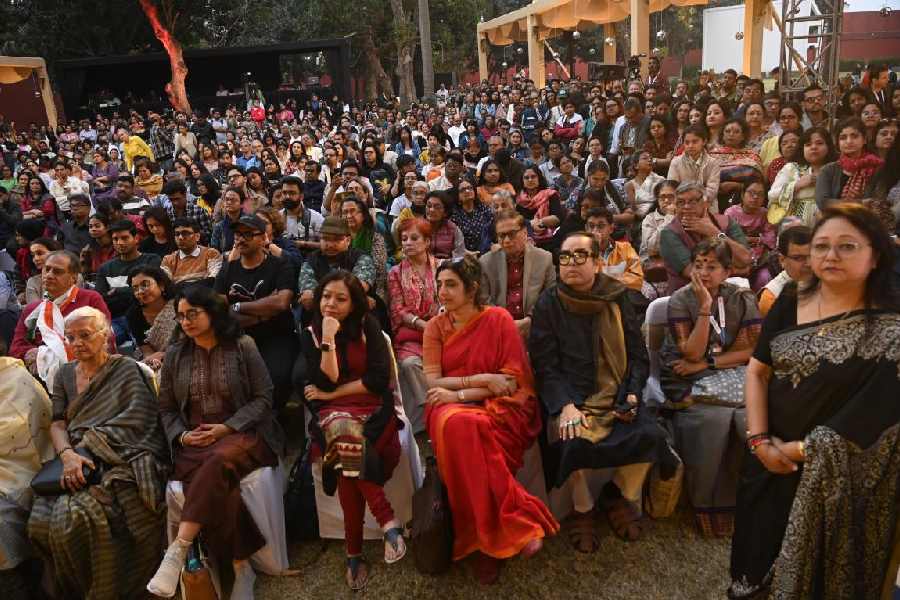
Tiretti Bazar: A 110-year-old dormitory in Tiretti Bazar that was built for the Chinese working population in the city but hardly had any visitor for over three decades has been turned into a restaurant in a bid to save the property from decay.
The effort at transforming the central Calcutta property stands in contrast to the indifference that many old buildings in Calcutta, some with heritage value, have fallen victim to.
Sei Vui Restaurant, opened in December, is housed in a section of the Black Burn Lane building where there was once a dormitory, run by Voiling Club. The 19 Chinese families who are members of the club paid for the restoration.
Chen Yao Hua, the president of Voiling Club, hopes that the adaptive reuse of the property would help sustain it and save it from being razed, a fate that has befallen many an old building in the city.
The Calcutta Municipal Corporation recently downgraded the heritage status of Hotel Kenilworth, at the crossing of Middleton Street and Little Russel Street, allowing a group of real estate builders to pull it down.
Told about the Tiretti Bazar initiative, writer Amit Chaudhuri, who founded Calcutta Architectural Legacies and has been fighting for retaining the architectural inheritance of the city, said: "This is wonderful news. This is exactly what has happened in most historic cities in the world and should also happen in Calcutta. But reuse should be made without losing what made the structure interesting in the first place."
Chen said that if people came out in numbers to dine at Sei Vu, "it will help us generate more revenue and that will in turn help us maintain the property well."
Tiretti Bazar or Old Chinatown is where the first Chinese settlers of Calcutta had started to live.
The dormitory was meant for men who would come to the city for jobs leaving their families behind in China. Over the years, the demand for lodging at the dormitory dipped in keeping with the decline in Calcutta's Chinese population.
Over the past three decades, the dormitory hardly had any visitor.
Dominic Lee of Pou Chong, which manufactures sauce and noodles, said there were over 10,000 Chinese in Tiretti Bazar when he was a kid around 40 years ago. "Today, there are less than 1,000," he rued.
The rapid decline in the community's population has led many to fear about the fate of the few remaining Chinese structures in Tiretti Bazar.
The transformation of the dormitory offers hope that a solution is in sight.
Chen of Voiling Club said a visit to the restaurant could be preceded by visits to the several Chinese churches in the area, on both sides of New CIT Road.
Yune Leong Futh Church, located in the same building as Sei Vui Restaurant, remains open between 8am and noon. Yune and Leong are the two deities worshipped in the church and Futh is Chinese for god.
The church is in the western corner of the building and the restaurant in the eastern corner. Between the two is a large hall with a centre table and chairs around it - the office-cum-meeting place for members of Voiling Club.
A large charcoal portrait of Sun Yat-sen - "Chinese Mahatma", said Chen - adorns the eastern wall of the room.
A community member said there are several Chinese clubs in Tiretti Bazar. The building where Sei Vui Restaurant is located houses another Chinese club - Hupeh Association.
Bang opposite is a now-defunct alms house and a church run by Chooney Thong club.
Mohammad Shabir Beig, who has grown up in Tiretti Bazar, is happy that the dormitory has been transformed into a restaurant.
"Usually any old structure that loses its relevance is pulled down. I am happy that in this case, we have found a new use for the property," said Beig.










